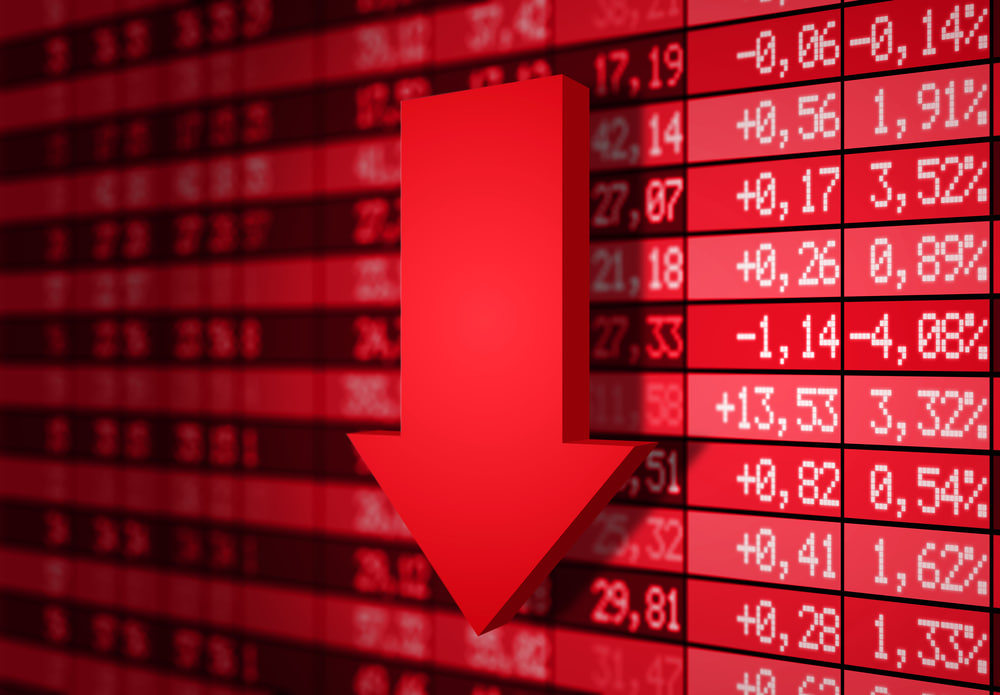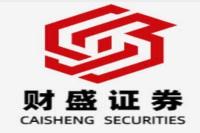Decoding the Hong Kong Tech Plunge: A Deep Dive into the Recent Market Shakeup (Meta Description: Hong Kong Tech Stock Decline, Hang Seng Tech Index, XPEV, Kuaishou, Market Analysis, Investment Strategy)
Dive into the heart of the recent turmoil gripping the Hong Kong tech sector! Imagine this: You're watching your investment portfolio, comfortably nestled in the seemingly stable waters of the Hong Kong stock market, when suddenly – BAM! – a market tsunami hits. The Hang Seng Tech Index takes a nosedive, dragging down tech giants like Kuaishou (Kuaishou Technology) and Xpeng (XPeng Inc.) with it. What's going on? Is this a temporary blip, a short-term correction, or the start of a much larger, more troubling trend? This isn't just another dry market report; it's a gripping narrative of market volatility, offering insights, seasoned advice, and actionable strategies to navigate this challenging landscape. We'll unravel the complexities behind the recent dramatic fall, exploring the underlying factors, analyzing the impact on investors, and offering expert perspectives to help you weather this storm and potentially even profit from it. We'll go beyond the headlines, examining the specific challenges faced by individual companies, evaluating their long-term prospects, and providing you with a framework for making informed investment decisions in this dynamic market. Are you ready to become a more astute investor? Let's embark on this journey together. This is your chance to not only understand what happened but to learn how to prepare for the next market shift. Buckle up, because it's about to get interesting!
Hang Seng Tech Index: Unpacking the Recent Decline
The recent slump in the Hang Seng Tech Index, particularly the significant drops experienced by companies like Kuaishou and Xpeng, has sent shockwaves through the investment community. On November 21st, the index plummeted over 1%, with Kuaishou suffering a near-12% loss and Xpeng experiencing a decline exceeding 5%. This wasn't an isolated event; it was part of a broader trend reflecting several interconnected factors. Let's dissect the key elements driving this downturn:
1. Macroeconomic Headwinds: The global economic climate is undeniably impacting investor sentiment. Rising inflation, interest rate hikes, and geopolitical uncertainties are creating a risk-averse environment. Investors are shifting their focus towards more stable, less volatile assets, leading to capital flight from riskier sectors like technology.
2. Regulatory Scrutiny: The ongoing regulatory scrutiny faced by Chinese tech companies continues to cast a long shadow. Stringent regulations, aimed at curbing monopolistic practices and protecting consumer data, have created uncertainty and dampened investor confidence. This regulatory pressure is a significant factor in the recent market volatility. Companies are forced to adapt, which often involves increased costs and a decrease in profitability – leading to a negative impact on stock prices.
3. Sector-Specific Challenges: Beyond the macro picture, individual companies within the Hang Seng Tech Index are grappling with unique challenges. Kuaishou's recent performance, for instance, reflects struggles in attracting and retaining users in a highly competitive market. Xpeng, alongside other electric vehicle (EV) manufacturers, is facing pressure from intensifying competition and supply chain disruptions. These pressures aren't temporary and must be considered during any analysis of the recent decline.
4. Investor Sentiment and Market Psychology: Fear and uncertainty are powerful forces in the stock market. Negative news, be it real or perceived, can trigger a cascade of selling, amplifying the initial decline. The recent downturn in the Hang Seng Tech Index is partly fueled by this contagious market psychology. It's a classic case of "herd behavior," where investors follow the actions of others, often leading to irrational decision-making.
5. Geopolitical Factors: Global geopolitical tensions, such as the ongoing conflict in Ukraine and escalating trade disputes, add further uncertainty to the mix. These events create market volatility, making investors hesitant to commit to long-term investments in riskier assets. The interconnectedness of global markets means that even events seemingly distant from Hong Kong can have a tangible impact on its tech sector.
Table 1: Key Factors Contributing to the Hang Seng Tech Index Decline
| Factor | Description | Impact on Hang Seng Tech Index |
|--------------------------|------------------------------------------------------------------------------------|---------------------------------|
| Macroeconomic Headwinds | Global inflation, interest rate hikes, geopolitical uncertainty | Negative |
| Regulatory Scrutiny | Stringent regulations on Chinese tech companies | Negative |
| Sector-Specific Challenges | Competition, supply chain disruptions, user acquisition challenges | Negative |
| Investor Sentiment | Fear, uncertainty, herd behavior | Negative |
| Geopolitical Factors | Global conflicts and trade disputes | Negative |
Navigating the Volatility: Strategies for Investors
The current market situation presents both challenges and opportunities. For investors, a thoughtful approach is crucial. Here are some key strategies to consider:
-
Diversification: Don't put all your eggs in one basket. Diversify your portfolio across different asset classes, sectors, and geographies to mitigate risk. This can help cushion the blow from sector-specific downturns like the one affecting Hong Kong tech stocks.
-
Long-Term Perspective: Remember, the stock market is cyclical. Short-term fluctuations are normal. A long-term investment horizon allows you to ride out market volatility and benefit from the potential for long-term growth. Don't panic sell!
-
Fundamental Analysis: Focus on the fundamentals of individual companies. Analyze their financial statements, business models, and competitive landscapes to identify undervalued companies with strong long-term growth potential. This approach can help you make informed investment decisions, even during periods of market uncertainty.
-
Risk Management: Understand your risk tolerance. Don't invest more than you can afford to lose. Implement appropriate risk management strategies, such as setting stop-loss orders, to protect your capital.
-
Stay Informed: Keep yourself updated on market trends, economic indicators, and company news. This will help you make informed investment decisions and adapt your strategy as needed. Trustworthy financial news sources and expert analysis can be valuable tools.
Kuaishou and Xpeng: A Closer Look
The significant declines experienced by Kuaishou and Xpeng highlight the specific challenges faced by these companies within the broader market downturn. Kuaishou, a leading short-form video platform, is grappling with increased competition in a saturated market. Xpeng, a major player in the EV sector, is facing pressure from intensifying competition and supply chain challenges. Both companies need to adapt quickly and innovatively to navigate these headwinds. Analyzing their financial reports and strategies, and understanding their competitive landscapes are key to assessing their future performance. It's crucial to look beyond the headline numbers and delve into the specifics of each company's situation.
Frequently Asked Questions (FAQs)
Q1: Is this the beginning of a larger tech crash?
A1: It's too early to definitively say. While the recent decline is significant, it's important to consider the broader context. The current downturn could be a correction within a larger upward trend, or it could signal a more prolonged period of market weakness. Careful analysis and monitoring are essential.
Q2: Should I sell my Hong Kong tech stocks now?
A2: The decision to sell depends on your individual circumstances, investment goals, and risk tolerance. Panic selling is rarely a good strategy. Consider your long-term investment horizon and the fundamentals of the companies you've invested in.
Q3: Are there any opportunities in this downturn?
A3: Yes, downturns often present buying opportunities for long-term investors. Companies with strong fundamentals may become undervalued during periods of market weakness, providing a chance to acquire them at discounted prices. Thorough due diligence is crucial.
Q4: What are the long-term prospects for the Hang Seng Tech Index?
A4: The long-term prospects depend on several factors, including the pace of economic recovery, regulatory developments, and the ability of individual companies to adapt and innovate. The index has shown significant growth in the past, and it's likely to experience periods of both growth and decline in the future.
Q5: How can I protect my investments during market volatility?
A5: Diversification, a long-term perspective, thorough due diligence, and risk management strategies are key to protecting your investments during periods of market volatility. Avoid emotional decision-making and stick to your investment plan.
Q6: Where can I find reliable information about the Hong Kong stock market?
A6: Reputable financial news sources, analyst reports, and company filings are valuable resources for staying informed about the Hong Kong stock market. It's crucial to cross-reference information from multiple sources to get a well-rounded picture.
Conclusion
The recent decline in the Hang Seng Tech Index serves as a potent reminder of the inherent risks associated with investing in the stock market. While the situation presents challenges, it also offers opportunities for those with a long-term perspective and a well-defined investment strategy. By understanding the underlying factors driving the downturn, conducting thorough due diligence, and practicing effective risk management, investors can navigate this volatile period and potentially emerge stronger. Remember, staying informed, remaining calm, and adapting your strategy based on market conditions are key to long-term success. This is a marathon, not a sprint.



